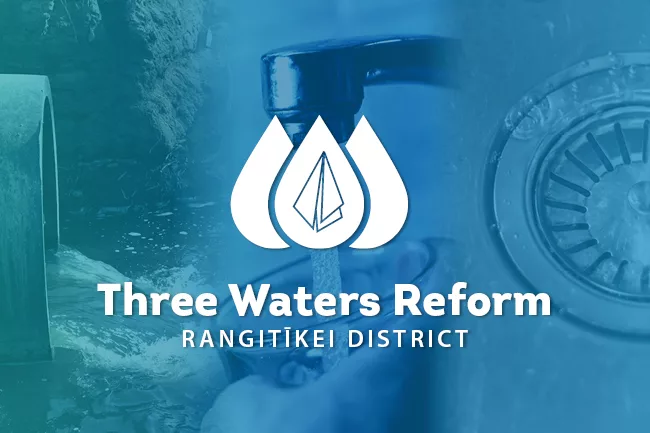Council to respond to Three Waters submission
July 13, 2022

Update: 20 July 2022
Council has responded to the to the Finance and Expenditure Select Committee considering the Water Services Entities Bill. For a copy of the submission, click below.
Rangitīkei District Council have resolved to respond to the Finance and Expenditure Select Committee considering the Water Services Entities Bill*, including seeking an opportunity to speak to the submission.
Council plans to reiterate its position from the submission made to Minister Mahuta on 1 October 2021, in which resident’s concerns were captured and raised. These concerns include the lack of proper community consultation or engagement, the requirement for ensuring a continued local voice, addressing investment prioritisation, concerns over an expected reduction in local governance, and clarity on pricing harmonisation. While some concerns such as asset ownership have subsequently been addressed by Government following Council’s submission, Council remain committed to ensuring the Rangitīkei voice is heard.
Rangitikei District Council Mayor, Andy Watson, said “Council were unanimous in their approach to ensuring the voice of our community is heard by central government. The impact of this reform is considerable, and needs to be done well in order to protect the assets our community has built over several decades, and to maintain safe and effective water services”.
Council’s submission to the Bill will be completed by July 22, and will be shown on Council’s website.
As the reform will affect most people in the Rangitīkei, Council sees it as important that individual and organisations also make their own submissions to the Select Committee. You can find out more about the Bill and the submission process here.
If you would like to learn more about the Three Waters Reform click here.
* This Bill is a stand-alone Bill that establishes 4 publicly-owned water services entities that will provide water services in place of local authorities. The Bill contains the ownership, governance, and accountability arrangements relating to those entities, and provides for transitional arrangements during an establishment period. Further Bills will consider pricing and charging arrangements including economic regulation and consumer protection regimes.
